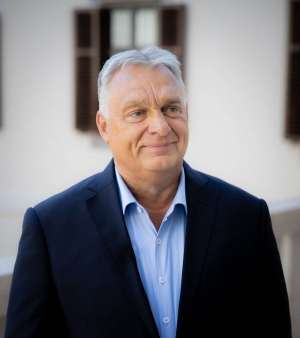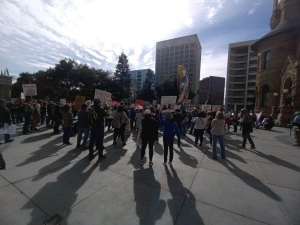The Russian-Ukrainian conflict has only given the European Union (EU) gas pipelines on paper, without the likelihood of a route that would be successful in the medium term, even though the member states have embraced the project of the European Union, which involves a very good interconnection of the gas and electricity network. More than that, the Russian Federation has buried Nabucco, has dropped South Stream and has promoted two other routes for supplying Europe with gas: Turkish Stream and Nord Stream 2.
In the market, analyst opinions are split. Some are saying that the southern corridor, which is being promoted by the EU, has the biggest chance of being achieved, and which carries natural gas from the Caspian Sea, and others only credit with any real chance Nord Stream 2, which doubles the Nord Stream 1 route (operational pipeline), by indirectly connecting influential Germany to the Russian natural gas, without the unwelcome intermediary Ukraine, which is it is unknown for how much longer will continue to "feed" South-Eastern Europe. Five European companies (E.ON, BASF, OMV, ENGIE and Royal Dutch Shell) have recently signed a deal with Gazprom to build Nord Stream 2 and have also agreed to asset exchanges.
The situation shows that a gap has been created between Western and Eastern Europe, which can be very hard to overcome. The West has diversified gas sources and it is far better interconnected, and the East still looks like an isolated island, for whom Russia can turn off the gas "tap" at any time.
At the same time, Turkey is playing both ends, signing several partnerships to get as cheap gas as possible. Turkey has supported the defunct projects Nabucco and South Stream and has signed a memorandum with Russia to start Turkish Steam.
One year ago, Gazprom dropped South Stream after the European Commission announced that the project does not comply with the legislation of the Third Energy Package. The pipeline was supposed to cross the Black Sea avoiding Ukraine and transporting the natural gas through Bulgaria, Hungary, Austria towards Western Europe.
Immediately after abandoning South Stream, the Russian giant promoted Turkish Stream, a pipeline also going below the Black Sea, but which connects Russia to Turkey directly. Russia has told Europe that starting in 2019, it needs to connect its infrastructure to the new pipeline because it wants to stop transporting natural gas through Ukraine.
Turkey did its job well and has negotiated very harshly with Russia the price of natural gas that should "flow" through Turkish Stream. Meanwhile, the conflict with Syria has begun, in which Turkey and Russia have diverging interests, and Gazprom has announced in the beginning of the month, that it is postponing the project, after signing a deal in September with five major European energy companies to build Nord Stream 2.
At the end of last week, Ali Riza Alaboyun, Turkish minister of energy, said, quoted by trend.az, that the implementation of Turkish Stream will be clarified soon, mentioning that the intergovernmental agreement would be reevaluated after the parliamentary elections in Turkey, scheduled to take place on November 1st.
Minister Alaboyun felt the need to stipulate that Turkey will support every action that "puts energy resources at work for peace ands security". Besides, for 28 years, Turkey has been one of the main markets for Russia to sell its natural gas on. The official further said: "Currently, 10 billion cubic meters of Russian gas is being imported by Russian private companies and 20 billion cubic meters by state owned company Botas. We are also importing natural gas from Azerbaidjan, Iran, Nigeria and Algeria".
Turkish Stream is designed to have four transport avenues, each with 15.75 billion cubic meters each.
The American Energy Information Agency (EIA) showed, in a recent report, that the reason why Turkish Stream "froze" was that Turkey could not agree with Russia on the price of natural gas. Turkish Stream was supposed to be the connection for Eastring, which would bring the Russian gas to South-Eastern Europe, involving, among other countries Slovakia, Hungary and Romania (ed. note: the networks exists and a better interconnection is being built).
The EIA noted that alternative suppliers for Europe aside from Azerbaijan would Iran and Iraq, but it mentioned that Iranian natural gas would be hard to bring in due to the lack of infrastructure.
In an analysis published at the end of last week, on geopoliticalmonitor.com, analyst Vladimir Socor doubts Russia's ability to supply Nord Stream 2: "Russia, Germany and five European companies have reactivated the project which would double the current capacity of the pipeline Nord Stream pipeline to 110 billion cubic meters. Nord Stream is the biggest gas transport project in the world in terms of pipeline length and capacity. Gazprom anticipates an economic turnaround of the West and a resumption in the growth of the demand for natural gas starting in 2019, which is also the suggested deadline for the completion Nord Stream 2. The Russian giant is expecting a decline in output in the Northern Sea".
The new pipeline will go around Ukraine and Eastern and Central Europe and will make the West more dependant on Russian natural gas.
The analyst comments that Gazprom to bring to this project natural gas from new deposits, but so far it has not identified the supply sources. But the company did not hide its firm intention to no longer export the natural gas through Ukraine, so it is to be expected that they would be redirected through Nord Stream 2.
According to the quoted source, professor Anis Bajrektarevic thinks that Nord Stream 2 would eliminate the negotiating advantages of some alternative routes with diversified sources for the central and eastern part of Europe, and the Russian-German alliance would put pressure on the Baltic states, Poland, Ukraine and even Azerbaijan and Georgia.
Vladimir Socor thinks that Turkish Stream is not a convincing project, while Nord Stream will change Germany's role, turning it into a huge energy hub.
From Germany, the natural gas can be transported further to Europe, through the existing pipelines OPAL and NEL.
The European Commission has raised several doubts over the fresh partnership on Nord Stream 2, but has not taken a firm stance. The Commission has said that it would ensure that Nord Stream 2 would comply with the European legislation as well.
Socor claims, however, that for South-Eastern Europe, (Moldova, Romania, Bulgaria, Greece) Russia will need to deliver gas through Ukraine and that it has no solution for going around it.
According to ITAR-TASS, the Hungarian foreign affairs minister Peter Szijjarto told Rossiya 24 TV that Europe has double standards, because it supports Nord Stream because the project involves major Western European companies, but has rejected South Stream because it was going to benefit smaller member states from Eastern Europe. The main argument used by the European Commission for the sanctioning of South Stream was that it avoided Ukraine as a transit route, he claims, stating that Nord Stream 2 also delivers natural gas by avoiding Ukraine and directing it mostly to the West.
To this whole Russian assault supported by Germany, the EU only answers with the project of the southern gas corridor, which has Azerbaijan as its main supplier. The project costs 45 billion dollars, and the gas would be transported through South Caucasus Pipeline (SCP), Trans-Anatolian Pipeline (TANAP) and Trans-Adriatic Pipeline (TAP) to an Italian interconnector. The construction of the pipelines is not yet, however, at an advanced execution stage. Additionally, the EU encourages all the member states to develop and to interconnect their transport networks, to allow the creation of a single gas market and to be able to negotiate with Russia under one banner. Individually, however, the EU member states still do what they please when it comes to the gas supply.
Romania stands alone on the South-Eastern European market, because it doesn't really need to import natural gas anymore. In this murky geopolitical landscape, Romania keeps trying to revive the project of the AGRI pipeline (Azerbaijan-Georgia-Romania Interconnector), which would bring Azeri gas to Romania via Georgia, to the Port of Constanţa, from where it would be transported to Western Europe, via Hungary. Crossing the Black Sea would be done using methane tankers, involving the construction of two liquefaction terminals on the Black Sea.
This summer, Energy Minister Andrei Gerea, said that the feasibility study shows that the project is viable for a volume of 5-8 billion cubic meters a year.
On the other hand, Radu Dudău, the head of the Energy Policy Group (EPG), still doesn't believe in the project, stating that AGRI has no convincing economic foundation. Azerbaijan is the only natural gas supplier for this project, as it is involved in the TANAP project, whereby it has already committed to deliver 6 billion cubic meters of gas to Turkey and another 10 billion cubic meters to Europe. He claims that Azeri gas is not sufficient to turn AGRI into a successful project.
The doctrinary conflicts in Syria have been devised by the Western countries, to cover up the war for oil and gas and for the power and money that come along with that, according to an analysis published by website Zerohedge, which reveals the reason why Syrians have been leaving their homes and seeking asylum in Europe.
The website claims that the involvement in Syria came immediately after the discussions over an Iran-Iraq-Siria pipeline, which was going to be built between 2014 and 2016 starting from the Iranian gas field South Pars, via Iraq and Syria. With a potential extension through Lebanon, it would have eventually arrived in Europe, the target market for exports".
A clear description of the current gas and oil crisis was done by Dmitry Minin said, for "Strategic Cultural Foundation", in May 2013, according to the quoted website: "A battle is raging over whether pipelines will go toward Europe from east to west, from Iran and Iraq to the Mediterranean coast of Syria, or take a more northbound route from Qatar and Saudi Arabia via Syria and Turkey. Having realized that the stalled Nabucco pipeline, and indeed the entire Southern Corridor, are only backed by Azerbaijan's reserves and can never equal Russian supplies to Europe or thwart the construction of South Stream, the West is in a hurry to replace them with resources from the Persian Gulf. Syria ends up being a key link in this chain, and it leans in favor of Iran and Russia; thus it was decided in the Western capitals that its regime needs to change".
Turkey had ambitions of becoming a strategic hub for oil and even gas exports to Europe, according to analysts, who quote a passage from "The Guardian", of August 2013: "Assad refused to sign a deal with Qatar and Turkey for building a pipeline from the field in Northern Qatar, adjacent to the South Pars field of Iran, via Saudi Arabia, Jordan, Syria and to Turkey, with the goal of fueling the European markets, skipping Russia. Assad's reason was to protect the interests of its Russian ally, which is Europe's main supplier".
After Assad turned down Turkey's proposal, the latter, together with its allies became the main architect of the civil war in Syria, according to Zero Hedge.



























































